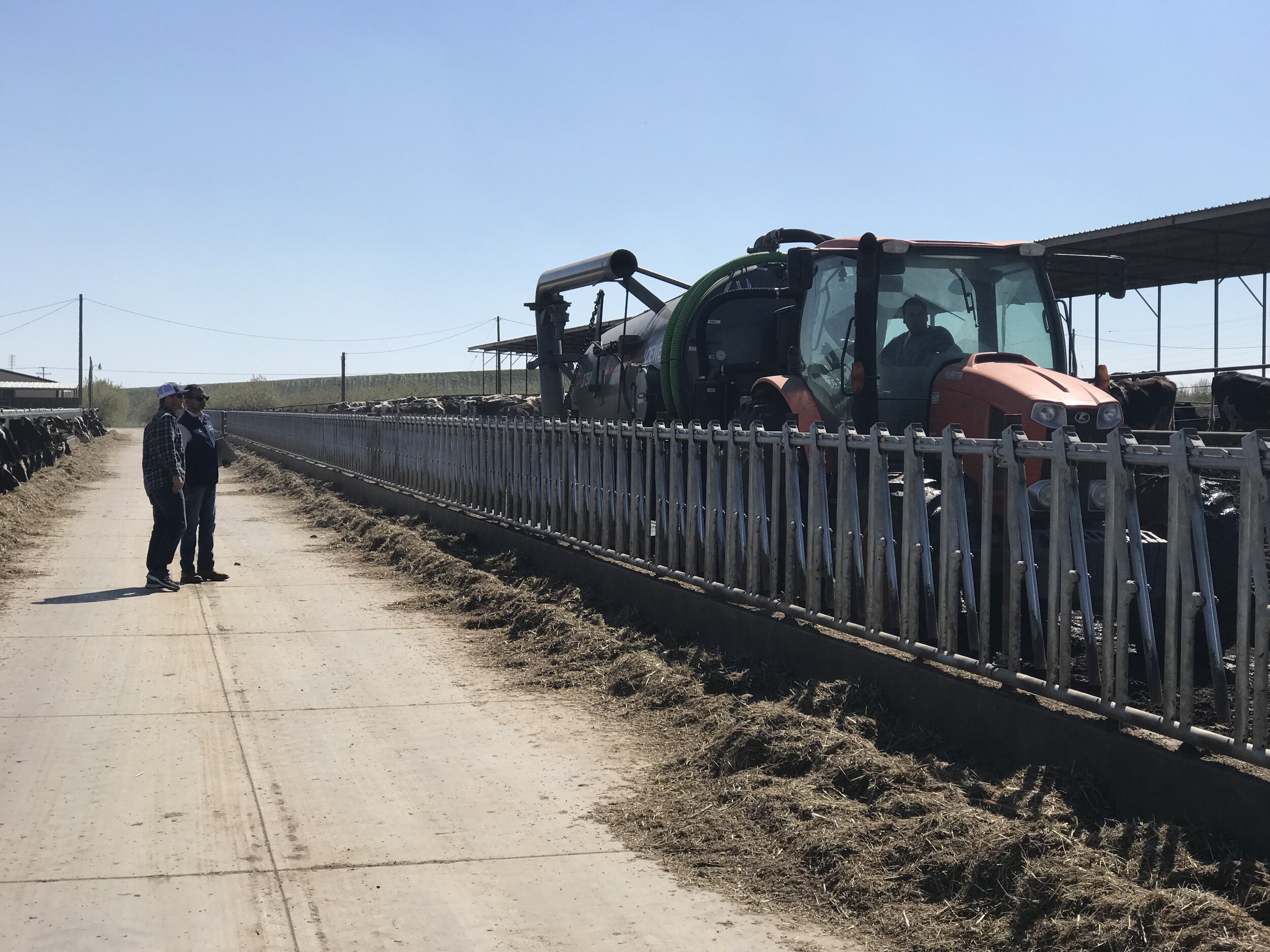California Department of Food and Agriculture
Vander Woude Dairy, a family-owned and operated business in Merced, California, has leveraged California Climate Investments (CCI) funding through the Dairy Digester and Development Program (DDRP) to implement an innovative covered lagoon digester for methane capture. The digester will process manure solids daily, capturing methane to be converted into Renewable Compressed Natural Gas for vehicle use at the dairy.









